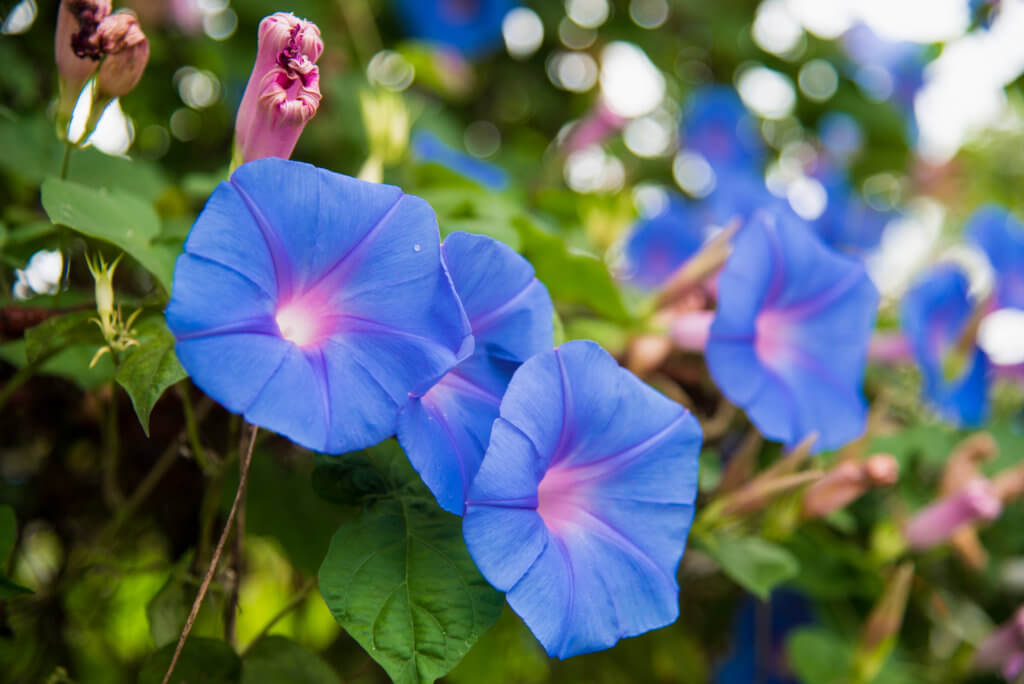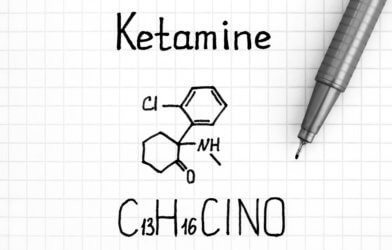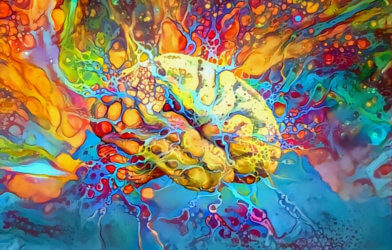Psychedelic drugs and the chemical compounds that form them have long been studied for their potential medical applications. Now, the compounds most often associated with the formation of LSD, ergot alkaloids, have been detected in the seeds of the morning glory, a popular flower found in many garden beds.
Thanks to a symbiotic relationship between a specific fungus and morning glory flowers—named for their tendency to bloom during the early hours of the day—many seeds of morning glories contain high levels of a bioactive ergot alkaloid, according to scientists. These fungal symbionts, or the smaller member in a symbiotic relationship, are passed down genetically by the flower. They were found to exist in a quarter of more than 200 species of morning glories worldwide.
Researchers obtained samples of various morning glory species from herbarium collections around the world. After screening each of the samples, a high concentration of bioactive ergot alkaloids were found in numerous species. Not only were the psychedelic compounds found in a quarter of samples, but each strain contained a different mixture of alkaloids, suggesting the relationship is unique to each morning glory and its fungal symbiont.
“Our study is the first to show how highly coevolved morning glories and their symbiotic fungi are, and that coevolution is manifested by different mixtures and concentrations of ergot alkaloids across the morning glory evolutionary tree,” said Keith Clay, chairman of the Tulane Department of Ecology and Evolutionary Biology, in a statement.
Additionally, morning glory species with large seeds were most likely to have higher concentrations of ergot alkaloids, according to the study.
Ergot alkaloids are named for their associated fungus, ergot, and are commonly associated with the illicit psychedelic drug LSD. However, they have been used historically by the indigenous people of Central and South America to treat various ailments. They’ve also been shown to effectively treat several medical afflictions in recent years, including migraine headaches and Parkinson’s disease.
While ergot alkaloids are a naturally occurring compound, their longtime connection with illegal drugs has largely tainted their mainstream reputation. The tricky legal nature of psychedelic drugs has made studying their medical and psychiatric benefits immensely challenging. Therefore, the research on the potential medical applications is sparse.
But the intriguing evidence thus far indicates a host of further treatment possibilities may exist with ergot alkaloids, for both physical and mental health issues.
With the proof of its naturally occurring existence in morning glories, there is hope that the stigma surrounding ergot alkaloids may begin to fade. Ideally, this will allow researchers to continue discovering new avenues for the positive, beneficial use of ergot alkaloids.
This study was originally published in the journal Communications Biology.
Article written by Adam Swierk












